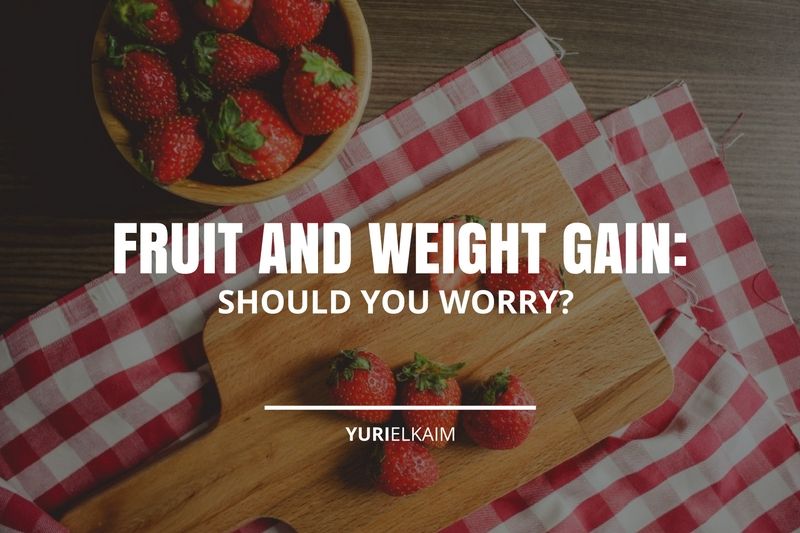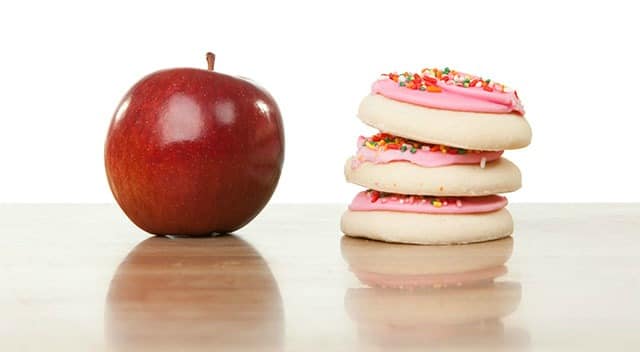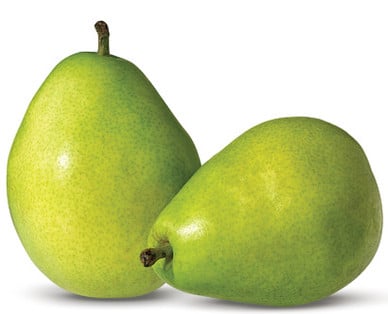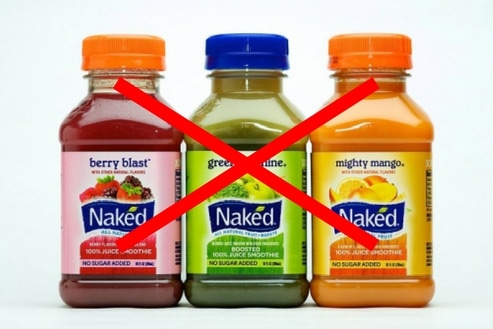In this article
You constantly hear about the dangers of sugar.
One of the first things health experts and nutritionists will tell you to do is to stop eating sugar, in order to prevent gaining weight.
There’s plenty of natural sugar in fruit. Does that mean there’s a connection between fruit and weight gain, too?
It’s a legitimate question – since fruit is made up of sugar molecules (glucose and fructose to be exact), there’s always the debate between whether or not the type of sugar in fruit can make you fat.
If you’ve been wondering about this question, let me answer it for you:
No, there’s no clear link between fruit and weight gain.
But it’s important to understand why the sugar in fruit doesn’t contribute to weight gain the way processed sugar does – and also how to prevent any weight gain that may be associated with eating a lot of fruit.
The Difference Between Fruit and White Sugar
There are two main differences between fruit and white sugar, and their effect on the body: one has fiber and nutrients and the other one doesn’t.
When raw sugar goes through the refining process to become white sugar, it’s stripped of any fiber, vitamins and minerals it once contained.
What you’re left with is a highly concentrated form of glucose-fructose. When ingested, the glucose-fructose rapidly increases your blood sugar levels because it has no fiber to slow down its release into the bloodstream.
Your body then responds to this quick influx of concentrated sugar by releasing a hormone called insulin.
Insulin helps remove sugar from your bloodstream into your cells to be used as energy. Any excess sugar that can’t be used for energy right away is stored in fat cells (1).
Fruit, meanwhile, contains the exact same kind of sugar molecules as white sugar.
But the reason fruit doesn’t have the same fat storage effect as white sugar is because it also contains a ton of fiber.
When you eat fruit, the fiber helps slow down the release of sugar into your bloodstream, so your body isn’t bombarded with a ton of sugar all at once. The fiber helps keep your blood sugar levels stabilize, and insulin doesn’t have to rush excess sugar into your cells or trigger fat storage.
Fruit is also a valuable source of nutrients such as antioxidants, vitamins and minerals, which white sugar doesn’t contain.
Fruit and Weight Gain
Although the fiber in fruit is the main reason fruit doesn’t make you fat, you can still argue that fruit can cause weight gain because of how the glucose and fructose are naturally digested.
Let me explain.
As you now know, fruit contains two main sugar molecules: fructose and glucose.
Glucose is actually your body’s preferred source of fuel because it breaks down very quickly and easily, and can be used for energy right away.
But fructose takes a different pathway in the body. When ingested, fructose makes a pit stop at your liver first, where it’s then converted into glucose to be used for energy.
The extra step that fructose takes to be used as energy can be potentially overwhelming for your liver.
If you have too much fructose in one sitting, your liver has a lot of work to do to convert it to glucose for energy.
Anything the liver can’t handle will then be converted into triglycerides (fatty acids) that can get stored in fat cells instead.
The only time this can really become concerning though, is if you’re removing fiber from the fruit and having large quantities of it in one sitting.
Why Juicing Fruit Isn’t Good
Juicing fruit removes its fiber, which allows glucose and fructose to become highly concentrated. As a result, all that sugar floods the bloodstream, overwhelms the liver, and triggers fat storage.
But eating fruit in its whole form with the fiber intact will not have the same outcome.
Fruit also gets a bad reputation for raising blood sugar levels, which can contribute to weight gain. But the fiber in fruit actually helps stabilize blood sugar levels (2).
Besides, it’s not fruit that we should be so worried about when it comes to gaining weight.
The foods that are most concerning for weight gain are processed foods that contain white sugar and promote fat storage, such as white bread, pasta, candy, pop, ice cream, and pastries.
How to Eat Fruit to Avoid Gaining Weight
If you’re still concerned about fruit and weight gain, here are a few tips to enjoy fruit that won’t promote or trigger fat storage.
1. Choose low-glycemic fruit (especially at night).
Although pineapples, mangoes, and bananas contain plenty of nutrients, they are higher in sugar than fruits such as apples, berries, cherries, and pears.
There’s nothing wrong with having a piece of fruit that’s higher in sugar once in awhile, but choosing low-sugar fruits over high-sugar fruits allows you to eat them more abundantly without worrying about gaining weight.
If you’re jonesing for a piece of fruit at night (which is much better than reaching for the ice cream or chocolate bar) stick to the low-glycemic fruit such as berries, pears, and apples. Low-sugar fruit has less of an impact on blood sugar levels, which makes it acceptable to eat in the evening.
This doesn’t mean you have to ban high-glycemic fruit from your diet altogether – just save it for a time of day you know you’ll need energy. This way your body will burn it as fuel right away, rather than store it as fat.
For example, include high-glycemic fruit as part of your post-workout snack (here and here) to replenish your glycogen stores.
But, if all you have on hand at night is a banana, there’s a way to work with that, too. You can avoid the blood sugar spike from high-glycemic fruit at night by pairing it with a protein or healthy fat (a handful of almonds or tablespoon of nut butter will do just fine) to help slow the release of sugar into your bloodstream.
2. Juice vegetables instead of fruit.
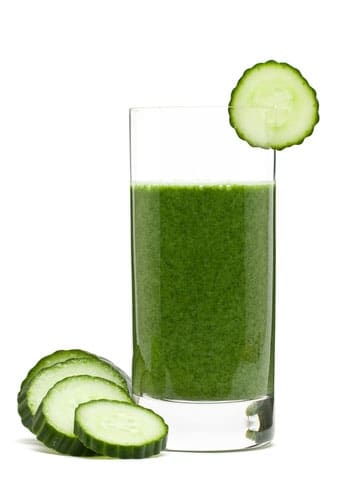
You can still make juice and avoid gaining weight from highly concentrated sugar by juicing vegetables instead.
Vegetables such as leafy greens, celery and cucumber are low in sugar and can be jazzed up with a squeeze of lemon and herbs, such as ginger.
Adding a piece of low-sugar fruit to veggie juice such as a pear or an apple once in awhile isn’t as much of a concern for weight gain, either. Moderation is key.
3. Avoid commercially prepared, unpasteurized fruit juice.
I hate to be the bearer of bad news, but the fruit juice sold in many health food stores is useless.
When fruit juice is pasteurized (for health and safety reasons), it gets depleted of many vitamins and minerals.
Since the juicing process has already removed its fiber, what you’re left with is essentially just pure, concentrated sugar that has the potential to be stored as fat.
Fruit Can Be Your Friend
As you can see, there are many valid opinions about fruit and whether or not fruit makes you fat.
The bottom line is, when you eat fruit in its whole, natural form, you’re providing your body with sound nutrition and pure energy.
You’re much more likely to experience weight gain from eating processed foods such as bread, pastries, candy, and drinking pop.
As with almost everything else in life, it’s all about moderation.
Get a Quick Health Checkup!
Feeling dull, tired and bloated? Get a free health assessment with my easy online Health Quiz.
Simply answer a few questions and get your health score today!

